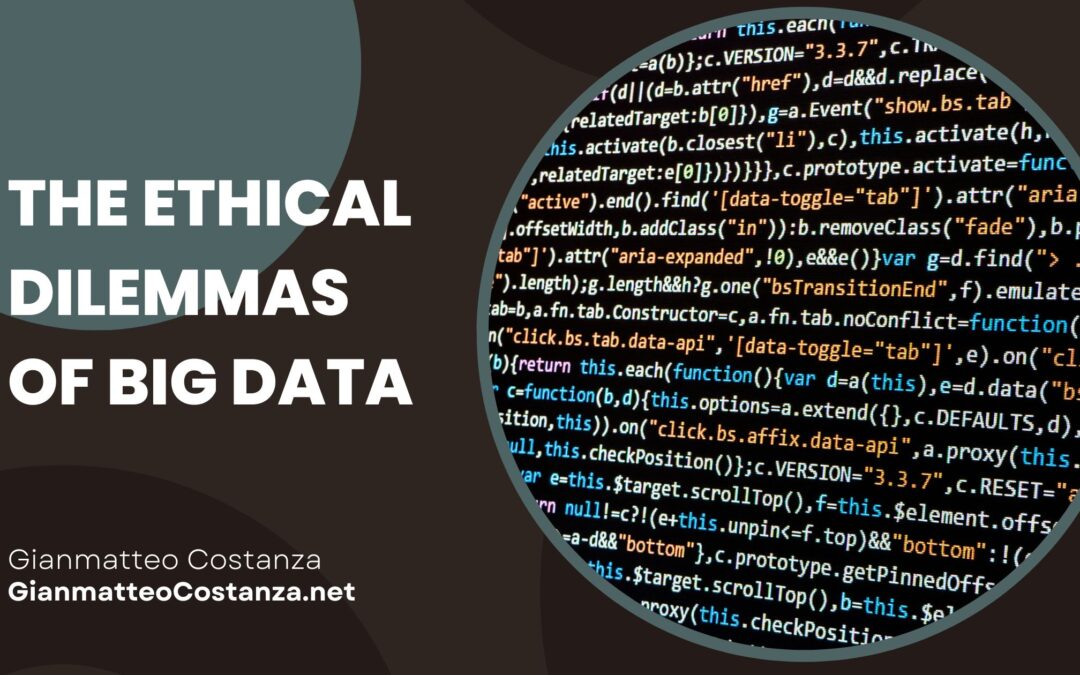Big data has emerged as a transformative force that promises countless benefits. It fuels artificial intelligence, drives business decisions, and enhances our understanding of complex phenomena. However, beneath these advancements lies a web of ethical dilemmas that we must examine critically. As we navigate the era of big data, we must grapple with privacy, bias, consent, and accountability issues.
Privacy Concerns
One of the most pressing ethical dilemmas surrounding big data is the erosion of privacy. In the quest for insights and profits, organizations often collect vast amounts of personal information without the explicit consent of individuals. This data can include everything from browsing history and social media activity to location data and health records. While proponents argue that such data is anonymized, it’s increasingly clear that de-identification could be better. Re-identification attacks have demonstrated that supposedly anonymous data can be linked back to individuals, jeopardizing their privacy.
The ethical question is whether the convenience and progress enabled by big data justify the invasion of personal privacy. Striking the right balance between the benefits of data-driven technologies and individuals’ privacy rights is a complex and ongoing challenge.
Bias and Fairness
Another significant ethical dilemma is bias. Algorithms are only as good as the data they are trained on, and the outcomes will be skewed if that data is biased. This bias can appear in many ways, from racial and gender disparities in predictive policing to discriminatory lending practices by automated financial systems.
Addressing bias in big data requires vigilance, transparency, and ongoing scrutiny. It involves identifying and rectifying existing biases and preventing new ones from emerging. The ethical imperative is clear: we must ensure that big data is a tool for fairness and justice rather than perpetuating discrimination.
Informed Consent
Informed consent has become a contentious issue. When individuals click “agree” to lengthy terms of service agreements or privacy policies, they often have no proper understanding of the extent to which their data will be used, shared, or sold. The ethical dilemma here lies in the power dynamics between individuals and the organizations that collect their data. Can consent be genuinely informed when the information is buried in legalese, and opting out of data collection means opting out of essential services?
Efforts to address this ethical issue include simplified terms of service, more transparent privacy policies, and the promotion of data literacy among the general public. However, informed consent remains elusive in many big data contexts.
Accountability and Regulation
Accountability is a crucial component of ethical data use. When things go wrong, who is responsible? Big data systems can make errors with significant consequences, whether a self-driving car causes an accident or an algorithm wrongly denies someone a loan. Accountability becomes complex when multiple parties are involved. These parties may include: data collectors and processors, designers of algorithms, and the users of automated systems.
Regulation plays a pivotal role in addressing these ethical dilemmas. Governments and international bodies must create and enforce rules that ensure responsible data use and provide a framework for holding organizations accountable for their actions. Finding a balance between innovation and regulation is challenging, but it’s essential to safeguard individual rights and societal well-being.
The ethical dilemmas of big data are complex and multifaceted. Privacy, bias, informed consent, and accountability require careful consideration as we navigate the data-driven landscape. We must prioritize both the benefits of big data and the rights and well-being of individuals, striking a delicate balance between progress and privacy. Only by addressing these dilemmas can we fully harness the potential of big data while upholding our ethical responsibilities.

